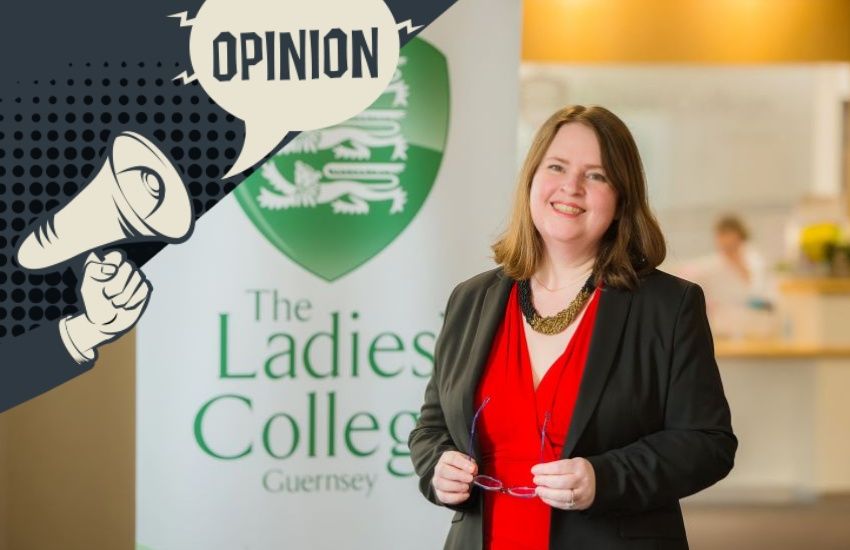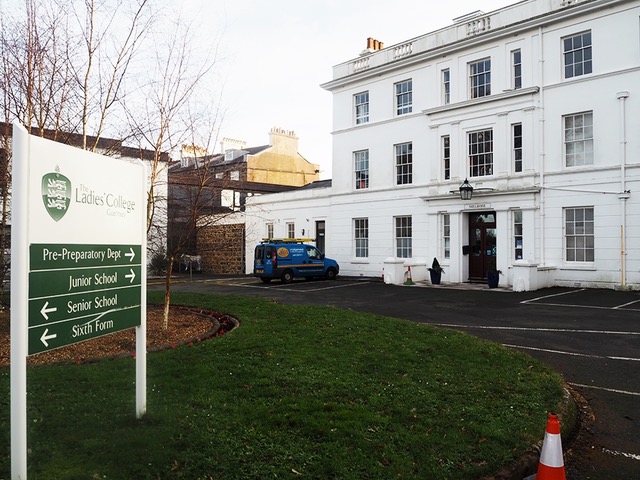


Truth and scientific theories are already under attack, but a leading educationalist in the island warns that artificial intelligence will intensify the blurring of the line between fact and fiction – impacting politics, war, and trust in institutions.
Daniele Harford-Fox, Principal at The Ladies’ College, presents her views in a short essay below:
“For a long time now, I’ve been worrying about how mushy the idea of ‘truth’ has become.
“When I was growing up it was reasonably easy to identify truth. If I read it in a textbook, it was likely given peer review and the methods of academia. If it was on the BBC, it was reasonably probable given the process of checking sources and press standards. If I heard it in the pub, it might be true. And if my uncle Roger said it, I treated it with a great deal of scepticism. But over the last ten years, the game has changed.
“There has been a rise of big players buying up papers or creating non-news news sources, such as GB News, to push strong political agendas. Politicians have jumped onto the bandwagon of popularism to suggest all opinions are equally valid, and, Uncle Roger may well now have his own YouTube account or podcast with two million followers, all of whom assume that his ‘theory’ is of the same value as scientific ‘theory’.
“In these muddy and turbulent waters, conspiracy theories have thrived, fuelled by algorithms, by our desire to hear the more exciting story, to have our worldview reflected back at us, and to believe that we are now the purveyors of truth. And in this heady - and often self-righteous – mix, we have discarded the decades if not century-old systems of verifying information - the peer review process, the triple sourcing of stories, the press standards and the scientific method. Instead, we’ve replaced it with gut instinct, cherry-picking and personality-based trust. As Michael Gove said in the Brexit debate - ‘oh we’ve had enough of experts’.
“And it’s about to get worse."

Pictured: Ms Harford-Fox is Principal at the Ladies' College.
“At the moment we at least trust videos and photographs. We can ‘google’ something to verify a fact. But AI can now create a realistic photograph based on an instruction. We have already seen the fake Kier Starmer video and are now operating in a world in which AI can comfortably create a video using someone’s voice and face to recreate whatever scenario we might want. We are seeing this with deep-fake pornography where unconnected women’s faces are realistically superimposed on actors’ bodies in a way that is violating and demeaning. But think about the potential in a wider sphere. Think about the impact on the 2024 political campaign of a video of Biden being inappropriate with a young woman. Think about the impact of a grainy video, leaked to key people, of Putin in a war office ordering the launch of a nuclear attack.
“We are going to be fed information, videos and images that manipulate us into world views, and it is going to be increasingly difficult to know what to rely on.
“Society is constructed on a shared agreement of how we identify truth. We can’t make political, medical, legal or even personal decisions if we don’t know what the facts are. We can’t work together if we can’t agree on what the fundamental starting point is. Without agreement on truth, we start to work in different tribes, to pull apart rather than pull together.
“In education, therefore, it is fundamentally important to equip our students with an understanding of how we separate truth from noise. We must teach them to review sources, be aware of cognitive biases and understand the scientific method. Not in an abstract fashion, but in a clear applied way where they comprehend what is at stake. We must teach them to understand that the chance of what they read as ‘being true’, particularly if it feels psychologically appetising, is increasingly thin.
“And we as a society have to become more discerning. We have to ask ourselves, what is the difference between information published by the BBC and information published by online forums?
“We have to understand the difference between Aunt Poppy’s theory on how vaccines work and a scientific theory that has gone through the standardised process of being empirically tested, replicated, exposed to peer review and then published.
“The temptation to play to our cognitive biases rather than our rational minds is intense. But the stakes are equally intense. We have to hold our information and ourselves to higher standards."
Pictured (top): Daniele Harford-Fox.